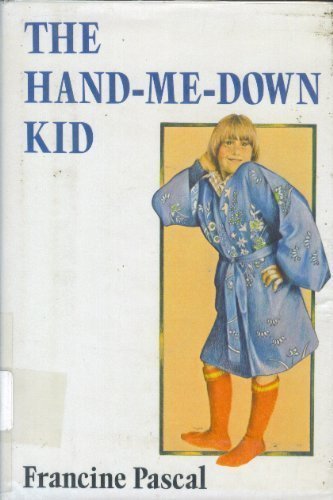Michele Huey's Blog: God, Me, and a Cup of Tea, page 28
January 28, 2020
Things to Remember: Asssembling
Dear followers,
The following is the January 2020 newsletter from Rachel Himes, Director of the We Care Pregnancy Clinic in Punxsutawney. I was so moved by what she wrote that I asked, and received, permission to post it here. May you be blessed as I was by the words the Holy Spirit gave her.
[image error]
“…Not forsaking the assembling of ourselves together, as the manner of some is; but exhorting one another…” – Hebrews 10:25 KJV
Friends,
I want to touch on practical ways and reasons why we need to “remember our God.”
I have been a follower of Christ for more than twenty-five years of my adult life. I do not take His Word lightly. But I have seen more and more apathy towards the things of God in this past decade than ever in my lifetime. We officially live in a generation who draws a greater portion of their doctrine and understanding of God from modern culture more than from Scripture. I want to remind us why we should “not forsake the assembling …”
We are commanded to. Plain and simple. And quite frankly, that should be enough.
It sharpens us. I have had my understanding of Scripture challenged and grown more by conversations in a Sunday school classroom than any teaching I’ve studied. I’m more of an introvert by nature, but I don’t use it as an excuse to avoid community. In fact, the historical account of every great move of God recorded happened in an assembly.
It reminds us we are not alone. The testimony of those around us is powerful. In fact, Revelation says we will overcome by two things: The blood of the Lamb and the word of our testimony. They are both powerful and both necessary.
The slow fade: An ember removed from the fire gradually loses its burn. Returning it to the fire will reignite it. And all of the embers together burn the brightest.
Sunday morning service is a commitment for me. No excuses.
But the enemy gives us reasons why we should not. Maybe he’s thrown some your way:
I’ve outgrown the church. Really? When babies grow up, they become adults. And their God-given job is to help raise the next babies into adults. Try teaching or serving.
Hypocrites. Yep. They exist. Did in Jesus’ day and now. Don’t be one.
I am spiritually strong and don’t need community. Like the head doesn’t need a hand? Because Scripture is very plain about the church being a body and that it should work together.
Sunday is the only day I can sleep in. I get it. Change your schedule. Because whatever in your life is more important than obeying God has taken a place above Him.
What does this have to do with me? you may ask. Everything. Maybe you go to church. Maybe you are in a small group. If you are, wonderful. I commend you.
But if you have pulled away for any reason at all, know the enemy is already using that to hurt the body of Christ, both by what you lose and by what you have to give. And don’t just go there, show up. Give. Serve. Participate. Scripture says we will reap when we sow. If you sow nothing, don’t expect to get a return.
I have heard many people say the modern, American church isn’t what Jesus intended. OK … but? If you read the letters Paul had to write to the early churches, you’ll see they weren’t either. But he urged the believers to keep pressing in and pressing on. He cited the great works God was doing in their midst.
If you think a church has to be perfect for God to move there, you’ve forgotten how utterly dependent we are on His grace to begin with. And frankly, if you’ve left the church over offenses by pastors or congregation members, or because of disagreements, you have allowed the enemy to draw a dividing line at your feet.
We weren’t promised it would feel good. We weren’t promised it would be easy. We weren’t promised we’d like all the people in our “family.” But we were told to stay diligent, stay alert, and stay committed. And if you’re not getting anything at all from it, I urge you to check your heart condition. Because God is always in the midst of His people. His Word says so. But just as a radio wave is present at all times in the air, one must be tuned to the station to hear it.
Friends, tune in. Shake the dust from your feet. If you believe we are living in the last days, there is work to be done. Be alert.
–Rachel Himes, Director,We Care Pregnancy Clinic, Punxsutawney
EXCITING UPDATES:
We are more than half way through our training scans. Please pray with us that we can finish this course and open sonograms to the public this spring. (MTH note: Technicians are being trained to use the donated sonogram machine so that those who come to the clinic will be able to see a sonogram of their baby. Statistics show those who have seen sonograms of their unborn babies opt to give birth and not have an abortion.)
Our banquet is officially set for Friday, May 8 of this year, Mother’s Day weekend. Please mark your calendar now. It will be exciting.
© 2020 Rachel Himes. All rights reserved. Used with permission.
For more information about We Care Pregnancy Center, click here.
January 25, 2020
Control Freak
But when the Holy Spirit controls our lives, he will produce this kind of fruit in us: love, joy, peace, patience, kindness, goodness, faithfulness, gentleness, and self-control. –Galatians 5:22–23 NLT
Growing up as the youngest in a poor family wasn’t all that great. 
I rarely got new clothes. Hand-me-downs from my older sister had to do, whether I liked them or not—and just about everything needed hemmed or taken in.
Then there was the keep-her-close-to-home syndrome my parents seemed to suffer from. Neither my brother nor my sister were rebellious in the sixties way, but, for some reason, my parents kept me close to home—and that included not wanting me to get a part-time job. A little pocket money would have improved my practically nonexistent social life, but my parents told me my job was “to be a good student” and “help your mother around the house.”
I obeyed on both counts. I made the honor roll every grading period and cleaned the house every week during the summer months. One time, wanting something different, I rearranged my bedroom furniture, now that I had the room all to myself, then spent the evening at a friend’s house. When I returned, the room was back the way it had been.
Then there was the financial situation. I’d been selected to be a band majorette for my junior year, and that meant money for boots, tassels, a new baton, band jacket, and a brand new uniform—and occasionally a soft drink after practice. My parents were still struggling from my father’s layoff years earlier. Knowing it was hard for them to come up with the extra cash, I got a part-time job at the school library for the summer months. It was one of those underprivileged student jobs through the local government.
My first day was heaven. I loved the work—I mean, here I was, an avid reader, working in a library. And I loved feeling useful, doing something to contribute to the family finances.
But when I got home, my mother told me that I wouldn’t be going to work the next day—or any day.
“There was a mistake,” she said.
Once again, I obeyed, but when I landed my first teaching job years later, I seized the reins of my life. And have struggled with relinquishing them ever since—even to God. Even though I know His way is best and He’s not a control freak like my mother was.
The kind of control my mother exerted led to frustration, disappointment, heartache, and rebellion.
But the kind of control that God, through His Holy Spirit, exerts leads to only good things—such as joy, peace, satisfaction, and fulfillment.
Isn’t that what we all hunger for?
Dear God, when I fight You for my way, remind me that Your way leads to all I’m searching for, all I desire. Break the control freak in me. Amen.
Read and reflect on John 15:1–8; 14:16–17, 26; 16:13
From God, Me, & a Cup of Tea for the Seasons © 2018 Michele Huey. All rights reserved.
January 18, 2020
Faith Farming
Therefore I say to you, whatever things you ask when you pray, believe that you receive them, and you will have them. –Mark 11:24 NKJV
Maxine was sick. Critically sick. The year-and-a-half–old Alpine goat had broken into the grain bin and helped herself to way too much for her stomach to digest.
Now, I thought goats could eat anything, and it wouldn’t harm them. Not so.
A goat, I learned, has four compartments in its stomach, the first of which is called the rumen. It is here that healthy bacteria begin to digest the food before passing it on. If the healthy bacteria are destroyed—by eating too much grain, for example—the goat can’t digest its food. The decaying food and unhealthy bacteria that linger in the rumen can quickly become toxic, leading to an agonizing death.
When Maxine’s owner, my friend Corinne, realized her precious goat was ill and why, she immediately called the vet.
“It took us hours to get as much IV fluids, injections, and antibiotics to keep her from toxicity, and pumping her stomach full of mineral oil, baking soda, and a laxative to help her dislodge the grain,” Corinne posted on her Facebook page.
She asked for prayer.
“I’ve been crying nonstop over my precious goat,” she said. “I can’t do anything more. I need God to intervene. She needs her rumen to work.”
The pressure from the stomach gas on Maxine’s heart and lungs caused her to groan with every breath.
“It’s excruciating for me, and exhausting for her,” Corinne said.
But still she persisted in prayer, singing praise and worship songs to Maxine every night and “speaking life over a goat that was dying.”
A week later, during which Maxine received treatment for pain, bloat, a damaged rumen, sepsis, and muscle breakdown, the vet returned—and was shocked by what she found.
“You do realize that I gave Maxine a 10 percent chance of surviving?” the vet told Corinne. “My other colleagues have never had a goat come back from this, when they’re this bad. She is a miracle.”
Later Corinne heard through a mutual friend, who also had goats, that the vet was perplexed.
“I don’t know” the vet had said, “but something kept that goat alive. I can’t explain it.”
Corinne can.
“Maxine is loved. She is healing. She is a miracle,” Corinne posted on Facebook.
You see, Corinne takes God at His Word. Jesus said to ask, so she isn’t afraid to ask mountain-sized requests. He said to knock, so she knocks and keeps on knocking until the door opens (Matthew 7:7–8).
She takes to heart the words of the Son of God when He said, “Whoever says to this mountain, ‘Be removed and be cast into the sea,’ and does not doubt in his heart, but believes that those things he says will be done, he will have whatever he says. Therefore I say to you, whatever things you ask when you pray, believe that you receive them, and you will have them (Mark 11:23–24 NKJV).
“God is good,” Corinne said. “And even if it would turn differently today, I would know that He is still good. I’m just glad I can still hug her neck, squeeze her little lips, and touch foreheads with her.”
I wish I were more like Corinne. Too often I let doubt eat away at my faith.
I need to remember what Corinne said: “If my Father is able to hear our heart cries over a sick goat, He’s able to hear your cries over what your heart is speaking.”
The next time I wrestle with doubt, that enemy of faith, I’ll remember a dying goat that lived—all because her owner believed in the power of prayer.
Help me, Lord, to have the kind of faith that moves mountains. Destroy every seed of doubt in me. Amen.
Read and reflect on Matthew 7:7–11; Mark 11:22–24; James 1:6–8.
[image error]Maxine and Lucy
© 2020 Michele Huey. All rights reserved. Photos by Corinne States (c) 2020 Corinne States. Used with permission.
January 11, 2020
When SAD Hits …
God is light and in Him is no darkness at all. – 1 John 1:5 NKJV
Several years ago I spent a week in January visiting my brother in Alabama. It was nothing short of glorious for this winter-weary western Pennsylvania gal. The daytime temperature ranged from the mid-60s to the low 70s, the southern sun shone in cloudless blue skies, and a light jacket was all I needed when I ventured outside.
And outside I went every day but one, soaking in as much sunshine—and vitamin D—as I could on my daily walks. I returned home re-energized in body, mind, and spirit.
There’s energy in the sun’s rays, and for northerners like me who suffer from Seasonal Affective Disorder (SAD), time spent in the sun is just the prescription needed to fight the lethargy, carb cravings, brain fog, low energy, and everything else associated with what’s also called the winter blues.
Living where I do, I can’t do anything about the shorter daylight hours that disrupt my body’s internal clock, but I can take steps to fight the symptoms.
Since a lack of adequate sunlight is the main cause of SAD, I spend as much time absorbing natural light during the winter months as I can. In addition to taking vitamin D supplements, I need to exercise regularly to boost my flagging metabolism and avoid the sugary and starchy foods that just create the craving for more of same.
We can suffer from spiritual SAD, too. Seasons of spiritual doldrums descend on all of us throughout life. Like with physical SAD, spiritual SAD can be overcome—but you can’t just wait it out, hoping it’ll go away on its own. You have to recognize the symptoms and make the effort to fight it.
The prescription is the same: more light, exercise, and the right food.
Get more light by spending more time with the SON.
“I am the Light of the World,” Jesus said. “Whoever follows me will never walk in darkness, but will have the light of life” (John 8:12). I spend time with the Son when I read the Gospels, allowing His words to soak into my spirit. All of God’s Word, for that matter, is “lamp to my feet and a light for my path” (Psalm 119:105).
The second Rx is exercise. Daily walking by faith boosts a flagging spiritual metabolism, strengthening flabby spiritual muscles. I exercise faith when I trust God to provide what I need and not take matters in my own pathetic hands, when I wait for His guidance and not run ahead of Him, and when, instead of demanding my own way, I leave the choice to Him.
Finally, the proper spiritual nourishment will help us avoid craving the wrong things—the junk that too often clutters our lives and clogs our joy. “My food,” Jesus once said, “is to do the will if Him who sent Me, and to finish His work” (John 4:34). In other words, obedience.
Have you spent time with the Son today?
When S.A.D. hits, remind me, Lord, to seek the Son, for He is always shining. Amen.
Read and reflect on John 1:1–12.
© 2015 Michele Huey. All rights reserved.
January 4, 2020
No Special Privileges
 “Blessed Art Thou” painting by Howard Lyon
“Blessed Art Thou” painting by Howard Lyon. . . and Jacob the father of Joseph, the husband of Mary, of whom was born Jesus, who is called the Christ. – Matthew 1:16 NIV
And a sword will pierce your own soul too. – Luke 2:35 NIV
The last woman to be named in “The Begats” of the first chapter of Matthew, Mary was a far cry from the other four. Unlike Tamar, Rahab, and Ruth, Mary, from the tribe of Judah and of the lineage of David, was thoroughbred Jewish. And unlike Tamar, Rahab, and Bathsheba, Mary was pure in every way—body, mind, heart, and soul.
Other than her role in the Christmas story, what do we know of her?
We know that she was probably a young teenager when the angel Gabriel appeared to her to tell her that she was to be the mother of the Messiah. We know that she grew up in Nazareth, a disreputable town of about seven thousand in the hills of Galilee. We know that she was betrothed to a carpenter named Joseph, also from Nazareth, who was probably about thirty years of age.
We know that Joseph was a good man, just and sensitive, and who most likely died before Jesus entered public ministry.
We know that she, still a virgin, gave birth to the Son of God in a stable in Bethlehem with her husband as the midwife. We know they were too poor to afford the lamb required for the sacrifice when she went to the temple forty days after Jesus’ birth for the purification ceremony.
We know that she spent the first couple of years of her married life as a fugitive, hiding in Egypt from a crazy king who was set to kill her son.
After their return to Nazareth following Herod’s death, we see Mary briefly only five more times in Scripture: in the temple in Jerusalem when she admonished twelve-year-old Jesus for staying behind after the Passover and not telling them (Luke 2:41–52); at the wedding in Cana, where, at her request, Jesus performed his first recorded miracle (John 2:1–5; in Capernaum when she and her other sons tried to see Jesus but received not a welcome but a rebuff (Matthew 12:46–50; Mark 3:21, 31–34); at the foot of the cross, watching her son die a horrific death (John 19:25–27); and in the upper room with the apostles after Jesus’ ascension into heaven (Acts 1:14).
No special privileges came with being the mother of God’s Son. Her acceptance of Gabriel’s message meant possible disgrace, divorce, and even death, as those guilty of having sex outside of marriage were stoned. After her burst of worship in the famous Magnificat, she steps humbly and submissively into the background.
She feared for her son’s life when He was but a baby. She raised Him, nurtured Him, trained Him in the way He should go, admonished Him, tried to intervene when His schedule was so heavy He had no time to eat, watched Him die like a common criminal in the most public, humiliating way.
As Simeon predicted when Jesus was mere months old, a sword, indeed, pierced her mother’s soul.
No special privileges except to bear and raise the Son of God—then, like all mothers eventually do, let Him go.
I often think that I deserve special privileges because I’ve been obedient. I pray about what I think are unmet needs: the kitchen floor (a painted subfloor), the roof that needs replaced, the two aging vehicles in our driveway.*
But God reminds me that I have much more than Mary, whose floor was probably dirt and who doubtless didn’t even have a donkey for travel. I have a roof over my head, a warm, dry bed to sleep in, enough vegetables and meat (venison) to feed me and my husband for a year. My husband has a steady job. We are both relatively healthy.
Yes, God promises blessings for obedience. But sometimes I’m blind to the real blessings because I’m too focused on the wrong things.
In this New Year, I pray that God will give me the eyes to see His blessings, the ears to hear His commands, the mouth to praise Him, the mind and soul to know Him, the heart to love Him, and the desire to serve Him.
Open my eyes, O Lord, to Your abiding presence in my life, Your abundant provision, Your awesome plan, and Your able protection. Thank You for reminding me that I’m not poor at all. Amen.
Read and reflect on Luke 1:26–56.
*This was written in 2010. Since then, these needs have been met.
From God, Me, & a Cup of Tea for the Seasons © 2018 Michele Huey. All rights reserved. Used with permission.
December 28, 2019
Bathing Beauty or Bimbo?
 . . . David was the father of Solomon, whose mother had been Uriah’s wife . . . – Matthew 1:6
NIV
. . . David was the father of Solomon, whose mother had been Uriah’s wife . . . – Matthew 1:6
NIV
For my thoughts are not your thoughts, neither are your ways my ways, says the LORD. For as the heavens are higher than the earth, so are my ways higher than your ways, and my thoughts than your thoughts. – Isaiah 55:8–9
Although she’s one of five women having the honor of being in mentioned in Jesus’ genealogy, unlike the other four, Bathsheba’s name is not given. Matthew simply refers her to as “Uriah’s wife.”
In my humble opinion, she’s worse than Tamar and Rahab. She can’t even hold a candle to Ruth, whose story is like a polished diamond in the coal mines of the Old Testament. They had what Bathsheba lacked— brains, guts and heart.
When we first encounter Bathsheba, she’s taking a bath—in an uncovered courtyard of a house in the middle of Jerusalem, where anyone standing on a nearby rooftop (they were flat in those days) could see her. Perhaps that was her intention. You see, the courtyard where she was bathing was in plain sight of the rooftop of King David’s residence. Scripture tells us Bathsheba was very beautiful.
Now King David already had seven wives, including Saul’s daughter Michal, the wife of his youth, and Abigail, the spunky, quick-witted widow of Nabal. (Read this great story in 1 Samuel 25.) Nevertheless, he summons Bathsheba, knowing both her husband and her father were members of the elite group of warriors known as “David’s mighty men.”
She could have said no. She knew the commandments as well as King David did. But she didn’t.
You know the story. David arranges for Uriah’s death in battle. As soon the seven days of mourning for her husband are up, Bathsheba marries King David. The baby conceived in adultery dies soon after birth.
Fast forward to the end of David’s life. As he lay on his deathbed, his son Adonijah plans to usurp the throne. David’s chief prophet approaches Bathsheba with a plan.
“Go in to King David and say to him, ‘Didn’t you promise me my son Solomon would be king after you? Then why has Adonijah become king?’”
She does as told. Solomon is crowned that very day (1 Kings 1:11–39). Okay, so she secured the throne for the king God had planned. But it wasn’t her idea.
The last time we see Bathsheba, she’s the queen mother. The relentless Adonijah uses her in a plot to wrest the throne from Solomon.
“Ask him to do one thing for me,” Adonijah tells her. “Give me Abishag the Shunammite as my wife.”
“Very well,” she says, clueless what this meant.
She should have known. Abishag was a part of David’s harem, and possession of the previous king’s harem signified the right of succession to the throne. By marrying Abishag, Adonijah would strengthen his claim to the throne. Good thing Solomon saw through the scheme.
Bathsheba possessed great physical beauty but little else. If it had been up to me, I would have chosen Abigail, who had more character, intelligence and spunk, for the honor of being an ancestor of the Messiah.
But God didn’t ask for my opinion.
Bathsheba bore David four sons, which included Solomon and Nathan. The wise and wealthy Solomon became one of Jesus’ ancestors through Joseph, his earthly father. Nathan’s line produced Mary, Jesus’ mother (Luke 3:31).
Bathsheba—bathing beauty or bimbo? Does it even matter?
What matters is that God chose her, not because of anything she did, but because of His own purpose and grace (2 Timothy 1:9) to fulfill a promise He made to David: “Your house and your kingdom will endure forever before me; your throne will be established forever” (2 Samuel 7:16).
This promise was fulfilled with Jesus’ birth, death and resurrection.
Bathsheba’s story is one of mercy and grace. Mercy, because she didn’t get the punishment she deserved for her adultery and her part in David’s conspiracy to murder her husband. Grace, because she received something she didn’t deserve—a place in the bloodline of Jesus Christ.
Mercy and grace—isn’t that what God’s all about?
“Thy steadfast love, O LORD, extends to the heavens, thy faithfulness to the clouds”( Psalm 36:5). Remind me of this, dear God, when I question Your love for and Your faithfulness to me. Amen.
Read and reflect on 2 Samuel 11:1–12:24.
From God, Me, & a Cup of Tea for the Seasons © 2018 Michele Huey. All rights reserved. Used with permission.
December 24, 2019
May your Christmas be filled to overflowing with the ble...
[image error]
May your Christmas be filled to overflowing with the blessings of peace, health, and happiness, and may God shower you with His best throughout the New Year. Thank you for your faithfulness in supporting my speaking and writing ministries with your prayers and your words of encouragement. Be blessed in Ephesians 3:20 ways – exceedingly abundantly above all you can ask or imagine!
~Michele
December 21, 2019
Famines, Funerals, and Families

. . . Salmon the father of Boaz, whose mother was Rahab, Boaz the father of Obed, whose mother was Ruth, Obed the father of Jesse, and Jesse the father of King David. – Matthew 1:5–6 (NIV)
And we know that in all things God works for the good of those who love him, who have been called according to his purpose. – Romans 8:28 (NIV)
Eleven hundred years before Jesus’ birth, there lived in Bethlehem of Judea an Israelite named Elimelech. A famine struck the land, and Elimelech took his wife, Naomi, and two sons, Mihlon and Kilion, to Moab, a land east of the Dead Sea where grain was abundant.
Now Moab wasn’t on Israel’s friends list. In fact, they were bitter enemies. (For the whole sordid story, read Genesis 19:30–36, and Numbers 22–25.) But Moab was where the food was, so . . .
The sons took Moabite wives, Orpah and Ruth. In time Elimelech died. Then Mahlon and Kilion also died. All this in the span of a decade.
There were no career paths or jobs outside the home for women at that time. No Social Security, no IRAs. Unless she was well off, a widow faced a future of poverty and had to depend on the charity of relatives. Naomi, whose name means “pleasant,” determined it was time to return home, where the famine was finally over, and where her late husband had relatives. Orpah and Ruth would accompany her.
Along the way, however, Naomi realized her daughters-in-law’s plight: As Moabite widows living in Israel, they had little, if any, chance of ever remarrying. The “kinsman-redeemer” practice of levirate marriage, in which the widow marries her dead husband’s brother to produce a son in his name so the family line doesn’t die out, wouldn’t help them. Naomi was too old to have any more sons.
“Go back home,” she urged them. There they could remarry, have children, and not face a life of poverty.
Orpah, in tears, kissed Naomi goodbye and returned to her pagan homeland. But Ruth made a surprising choice.
“Don’t urge me to leave you,” she said. “Where you go I will go, and where you stay I will stay. Your people will be my people and your God my God. Where you die I will die, and there I will be buried. May the LORD deal with me, be it ever so severely, if anything but death separates you and me” (Ruth 1:16–17 NIV).
Naomi’s faithfulness to God while living in a heathen nation had made an impact on her daughters-in-law, whether she realized it or not. But now she wondered if this was how God rewarded faithfulness.
“Could this be Naomi?” the womenfolk exclaimed when she returned to Bethlehem.
“Don’t call me Naomi,” the grieving woman said. “Call me ‘Mara’ (Mara means bitter), for the Almighty has made my life very bitter. I went away full, but the LORD brought me back empty.”
You know the rest of the story. How Ruth “just happened” to glean in the fields belonging to a wealthy relative of her late father-in-law. How Boaz redeemed Elimelech’s inheritance, taking Ruth as his wife. And how Naomi’s life became full again when she bounced her new grandson, Obed, on her knee.
She didn’t know that this grandson would be an ancestor of the Promised Messiah. All she knew was that God had turned her mourning into dancing, her sorrow into joy—just like God.
According to tradition, the Field of Boaz, where Ruth gleaned after the harvesters, where Boaz first set eyes on Ruth, is the field where, eleven hundred years later, an angel appeared to shepherds and made a startling birth announcement. And the house where Boaz took Ruth to be his wife, a millennium later, was the site of a stable where a virgin from Nazareth gave birth to the Son of God.
Have you, like Naomi, cried out in the depths of grief, disappointment, and pain? “God, how could You let this happen? Haven’t I been faithful?”
Just wait. Like Naomi, God works in all things for your good (Romans 8:28). He will turn your bitter, crushing losses into joy unspeakable. He promised. And God always keeps His promises.
All you have to do is believe.
When disappointments and sorrows and trials come and linger, remind me, Dear Lord, of Your promise—that You will work ALL things for good. Amen.
Read and reflect on the Book of Ruth.
From God, Me, & a Cup of Tea for the Seasons © 2018 Michele Huey. All rights reserved. Used with permission.
December 14, 2019
Of Prostitutes and Promises

Salmon the father of Boaz, whose mother was Rahab . . . – Matthew 1:5 NIV
… was not even Rahab the prostitute considered righteous for what she did when she gave lodging to the spies and sent them off in a different direction? – James 2:25 NIV
By faith the prostitute Rahab, because she welcomed the spies, was not killed with those who were disobedient. – Hebrews 11:31 NIV
The year: circa 1400 BC. The place: Jericho, the most fortified city in the land of Canaan.
Having served their sentence of forty years in the wilderness, the Israelites were knocking at Jericho’s gates. Even though God’s chosen people were still on the other side of the Jordan River, the inhabitants of Jericho—10,000 strong—were terrified. They’d heard all about how the Red Sea miraculously parted so the children of Israel could walk through on dry ground, and how the pursuing Egyptians drowned. They’d heard about how the Israelites, a fugitive nation with little or no military training, had annihilated the Amorite kingdoms of kings Sihon and Og.
And now, here they were, just across the river, poised to strike. Yep, the citizens of Jericho were shaking in their sandals.
But the Israelites didn’t know this. Not until Joshua, their leader, sent two spies to the city. It should come as no surprise that these men ended up in the house of the only person in Jericho who would protect them—a prostitute by the name of Rahab.
When the king sent his heavies to Rahab’s house to arrest the spies, she said they’d already left.
“If you hurry,” she told them, “you can catch up with them.”
Then she went up to the roof, where the spies were hiding under stalks of flax laid out for drying.
“I know that the LORD has given this land to you and that a great fear of you has fallen on us, so that all who live in this country are melting in fear because of you,” she said, adding that they’d heard what had happened at the Red Sea and to the two kings. “Everyone’s courage failed because of you, for the LORD your God is God of heaven above and on the earth below.”
Her words jogged their memory: “I will put the terror and fear of you on all the nations under heaven,” God had promised not too long before. “They will hear reports of you and will tremble and be in anguish because of you” (Deuteronomy 2:25 NIV).
Rahab then asked for protection for her and her family when they conquered the city. The spies promised, tying a scarlet cord in the window that would identify her house to the invading Israelites.
You know what happened. The walls of Jericho fell down flat, the Israelites conquered and burned the city, and Rahab and her family were saved.
But did you know that Rahab, the former harlot, married Salmon, who is believed to be the son of Caleb, one of the two spies who came back with a good report forty years earlier? The union of their son Boaz and Ruth produced Obed, the grandfather of King David, an ancestor of Jesus the Messiah.
This is a story of faith and faithfulness: the remarkable faith of Rahab, which distinguished her for the future “Hall of Faith” (Hebrews 11), and the faithfulness of God, who always keeps His promises.
 Take note: Jericho fell a few weeks after the flax was harvested—in March, the time of the Passover. The crimson blood of the Passover lamb represented a promise, a covenant, between God and the Israelites. The scarlet cord in Rahab’s window identified the one to whom a promise was made.
Take note: Jericho fell a few weeks after the flax was harvested—in March, the time of the Passover. The crimson blood of the Passover lamb represented a promise, a covenant, between God and the Israelites. The scarlet cord in Rahab’s window identified the one to whom a promise was made.
Fast forward 1,400 years, to the night one of Rahab’s descendants, a man named Jesus, held up a cup of wine, and proclaimed, “This is My blood of the new covenant …”
This blood, the blood of God’s only Son, fulfilled the promise He made at the dawn of civilization, when the sin of our first parents created a chasm between them, and hence all mankind, and a loving Creator.
If Rahab—a common prostitute who lived in a nation whose wickedness aroused God’s wrath and marked them for total destruction—could believe the promises of a God she’d only heard of at the risk of her life, how can we, who have God’s Word and His Spirit, not also believe?
Come, thou long-expected Jesus, born to set thy people free. From our fears and sins release us; let us find our rest in thee. Israel’s strength and consolation, hope of all the earth thou art. Dear desire of every nation, joy of every longing heart.*
*From “Come, Thou Long-Expected Jesus,” by Charles Wesley. Public domain.
Read and reflect on Joshua 2.
From God, Me, & a Cup of Tea for the Seasons © 2018 Michele Huey.
December 7, 2019
Tamar’s Trump Card
 “Your seal and your cord and the staff in your hand.”-
“Your seal and your cord and the staff in your hand.”-
Judah the father of Perez and Zerah, whose mother was Tamar. – Matthew 1:3
Many are the plans in a man’s heart, but it is the LORD’s purpose that prevails. – Proverbs 19:21 (NIV)
One of the skeletons in Jesus’ genealogical closet was a woman by the name of Tamar, the Canaanite wife of Judah’s oldest son, Er.
At that time, the sons of Israel weren’t a nation yet. They were a bickering, jealous, scheming lot who sold their own brother into slavery. Judah’s was the line that would eventually produce the Messiah. You’d think it would be a line that was pure and noble, filled with brave men and women who did what was right.
Think again.
Now Judah’s son Er so wicked that God put him to death. Since he had no sons, his widow, Tamar, was given to his brother Onan, Judah’s second son. This was the custom back in those days to keep the family line going. Problem was, if Onan fathered a son, the boy wouldn’t legally be his—it would be his dead brother’s.
That didn’t go over too well with Onan. So he made sure he wouldn’t sire a child through Tamar. That didn’t go over too well with God, who zapped him, too.
“Live as a widow in your father’s house until my son Shelah grows up,” Judah told Tamar. But he had no intention of giving his remaining son to a woman who went through two of his offspring already.
Tamar did what she was told. She went to her father’s house and waited. And waited. And waited. Eventually she realized that she’d be a widow in her father’s house until the day she died if she waited for Judah to make good on his word. So she took matters into her own hands.
Disguising herself as a prostitute, she sat down by the roadside when she knew he’d be passing by. Her plan worked. Judah “hired” her.
“What will you give me?” she asked.
“A young goat from my flock,” he said.
“Will you give me something as a pledge until you send it?”
“What do you want?” he asked.
“Your seal and your cord and the staff in your hand.”
Without a thought he handed them over.
Shrewd of Tamar. Stupid of Judah. These items were the driver’s licenses and Social Security numbers of that day, used for identification.
When Judah sent a servant with the promised goat, he couldn’t find her.
“There hasn’t been any shrine prostitute here,” the men of the area told him.
“Ah, let her keep what she has,” Judah said when the servant reported back to him.
Three months later Judah learned Tamar was pregnant. Furious, indignant, he called for her to be burned to death. She played her trump card.
“See if you recognize whose seal and cord and staff these are,” she said. “I am pregnant by the man who owns them.”
Ever want to get away? I’m sure Judah did at that moment.
“She is more righteous than I, since I wouldn’t give her to my son Shelah,” he said.
One of the twin boys she bore, Perez, would be an ancestor of Jesus, the Messiah.
This isn’t a story of “all’s well that ends well.” Neither is it evidence that “the end justifies the means.” And don’t claim Romans 8:28—“all things work together for good.” “Good” isn’t “best.”
But to fulfill His promise, God used the only thing He had—flawed human beings who thought nothing of shirking their duty, going back on their word and obtaining what they wanted through deception and manipulation.
Human nature hasn’t changed. But what has changed is that now we can do something about it. For God “has saved us and called us to a holy life—not because of anything we have done, but because of his own purpose and grace” (2 Timothy 1:9 NIV).
And that’s a trump card in anybody’s hand.
Amazing grace, how sweet the sound that saved a wretch like me! I once was lost, but now am found, was blind but now I see.* Thank you, thank you, thank you, Lord! Amen.
*From “Amazing Grace,” by John Newton (Public Domain)
Read and reflect on Genesis 38:6–30.
This is the second in a series exploring the genealogy of Jesus.
From God, Me, & a Cup of Tea for the Seasons, © 2018 Michele Huey. All rights reserved.
God, Me, and a Cup of Tea
- Michele Huey's profile
- 19 followers



